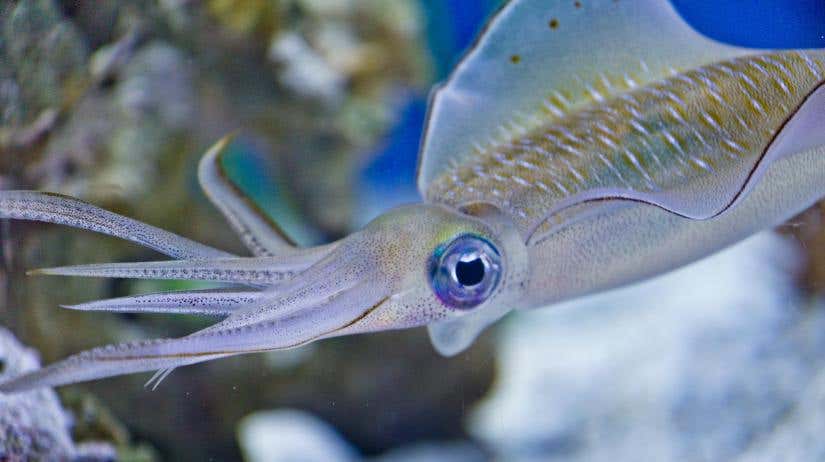Scientists believe that insects, reptiles, amphibians, and fish could also be sentient
A fascinating trend has emerged in scientific research, revealing surprising behaviors in creatures thought to operate solely on instinct

In the past five years, a fascinating trend has emerged in scientific research, revealing surprising behaviors in creatures long thought to operate solely on instinct. Bees rolling wooden balls, cleaner wrasse fish recognizing themselves in mirrors, and octopuses avoiding settings associated with past pain are just a few examples.
These findings suggest that animals may possess inner lives, hinting at a level of consciousness and sentience previously underestimated. This revelation has led a group of prominent researchers in animal cognition to release a groundbreaking statement: "The New York Declaration on Animal Consciousness."
Presented at a conference held at New York University, this declaration, signed by nearly 40 researchers, marks a significant shift in scientific understanding. It asserts strong scientific support for the consciousness of birds and mammals and posits the realistic possibility of consciousness in all vertebrates, including reptiles, amphibians, and fish.
Furthermore, it extends this possibility to creatures without backbones, such as insects, decapod crustaceans (including crabs and lobsters), and cephalopod mollusks like squid, octopus, and cuttlefish.
Jonathan Birch, a philosophy professor at the London School of Economics and a signatory of the declaration, emphasizes the transformative nature of this shift. He notes that the scientific community is increasingly willing to explore the idea that animals, including bees and octopuses, might possess some form of conscious experience.
The concept of animal sentience or consciousness lacks a standardized definition but generally refers to the ability to have subjective experiences, sense the outside world, and potentially experience emotions like joy or pain.
Related Stories
Historically, scientific orthodoxy, influenced by figures like René Descartes, viewed animals as mere "material automata" devoid of consciousness or souls. However, modern research challenges this notion, with scientists now focusing on animal cognition and subjective experiences.
Recent studies have employed innovative tests to assess animal cognition, yielding surprising results. For instance, the mirror-mark test, traditionally used to gauge self-recognition in animals, was unexpectedly passed by cleaner wrasse fish.
Initially showing no reaction to a mirror, these fish later exhibited behaviors indicative of self-awareness, challenging previous assumptions about their cognitive abilities.
Similarly, experiments with zebrafish and cuttlefish have revealed signs of curiosity and memory retention, respectively. Moreover, studies on crayfish subjected to stressors and subsequent treatment with anti-anxiety drugs suggest parallels between animal and human responses to pharmacological interventions.
The expanding scope of animal consciousness research over the past decade reflects a broader trend towards inclusivity, encompassing a wide range of species beyond traditional subjects like mammals and birds. This shift prompts fundamental questions about which animals possess consciousness, rather than assuming its absence in non-human species.
The evolving understanding of animal sentience carries profound implications for legal frameworks, particularly in the United States, where federal law does not classify animals as sentient beings.
Instead, laws primarily focus on conservation, agriculture, and animal welfare in specific contexts like research laboratories and zoos. However, state-level initiatives, such as Oregon's recognition of animal sentience a decade ago, signal a growing awareness of animals' capacity for subjective experiences.
Recently, states like Washington and California have considered bans on octopus farming, reflecting scientific evidence of octopus sentience. In the United Kingdom, legal amendments have extended protections to octopuses, crabs, and lobsters, recognizing them as sentient beings and prompting discussions about humane treatment in practices like slaughter.
As scientific research continues to unveil the complexities of animal cognition and consciousness, the need for ethical consideration and legal reform becomes increasingly apparent. The journey into animal minds challenges preconceived notions, urging society to acknowledge and respect the inner lives of all creatures with whom we share this planet.
For more science and technology stories check out our New Discoveries section at The Brighter Side of News.
Note: Materials provided above by the The Brighter Side of News. Content may be edited for style and length.
Like these kind of feel good stories? Get the Brighter Side of News' newsletter.



